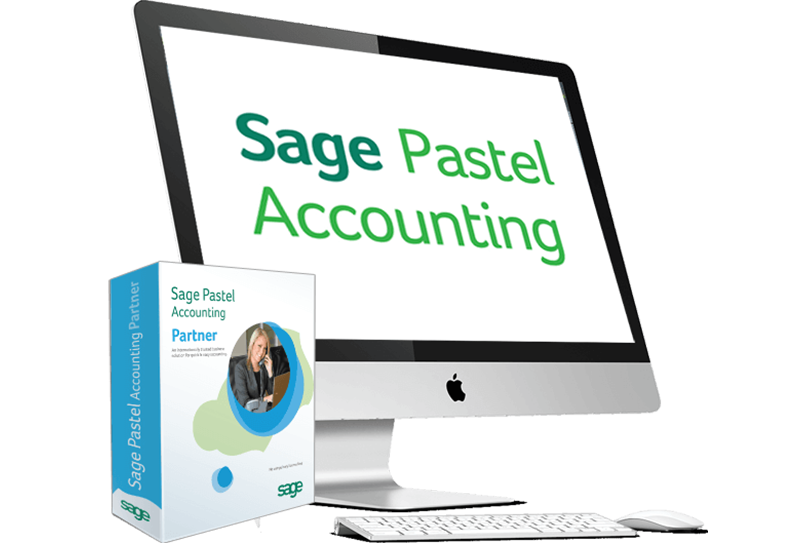1. You’re Spending Too Much Time Fixing Errors
Spreadsheets are notorious for human errors. A single misplaced decimal point or a broken formula can distort your financial records and lead to costly mistakes. The more your data grows, the higher the risk.
Why This Matters:
Manual data entry across multiple sheets increases the chance of inconsistencies and duplication. Correcting these errors wastes valuable time that could be spent focusing on strategic business activities.
How Pastel Helps:
Pastel automates your accounting processes, from data capture to reporting. Transactions are recorded accurately in real-time, reducing the risk of manual input errors and ensuring your financial reports are always reliable.
2. You Lack Real-Time Financial Insights
When using spreadsheets, financial updates often happen weekly or even monthly, meaning you’re always working with outdated information. This delay can prevent you from making informed business decisions quickly.
Why This Matters:
In fast-paced markets, decisions based on stale data can result in missed opportunities or poor financial planning.
How Pastel Helps:
Pastel offers real-time dashboards and automated reporting tools that give you up-to-date insights into cash flow, expenses, and profitability. You can monitor your financial health instantly and make informed decisions without waiting for month-end updates.
3. Collaboration Has Become Complicated
If your team has grown, chances are multiple people now handle your finances — from sales to inventory and accounts. When everyone is working on separate spreadsheet versions, confusion and duplication are inevitable.
Why This Matters:
Version control issues create chaos. Different team members may update different sheets, and merging these versions can cause data loss or inconsistencies.
How Pastel Helps:
Pastel provides a centralised accounting system where multiple users can access and update information simultaneously. All your financial data stays synchronised, secure, and consistent. Teams can collaborate efficiently without the hassle of sharing or reconciling multiple files.
4. Your Reporting Needs Are Becoming More Complex
As your business grows, so does the complexity of your financial reporting. Spreadsheets might have served you well for basic profit-and-loss statements, but they struggle when you need detailed reports for taxes, audits, or performance tracking.
Why This Matters:
Complex reporting often requires advanced formulas and manual adjustments. This not only increases the margin for error but also slows down financial analysis.
How Pastel Helps:
Pastel generates comprehensive financial statements with just a few clicks. It allows you to customise reports for specific departments, products, or timeframes — all without complex manual calculations. You can easily track income, expenses, and performance across multiple business units.
5. Compliance and Audit Requirements Are Harder to Meet
When auditors or tax authorities request documentation, finding accurate data within a maze of spreadsheets can be stressful. Spreadsheets don’t offer audit trails or built-in compliance features, making it difficult to verify transactions and changes.
Why This Matters:
Non-compliance or inaccurate records can lead to penalties and damage your company’s credibility.
How Pastel Helps:
Pastel maintains automatic audit trails and complies with accounting standards. Every transaction is traceable, ensuring transparency and accountability. You can easily generate tax reports, financial summaries, and supporting documentation for audits without scrambling through files.
While spreadsheets appear “free,” the real cost lies in inefficiency, errors, and lost productivity. As your business scales, these costs add up — from wasted man-hours to missed financial insights. Businesses that cling to manual systems risk stunted growth and poor decision-making.
Upgrading to Pastel Software not only saves time but also enhances accuracy, improves collaboration, and ensures compliance. The transition might seem daunting, but the long-term benefits are substantial.
Why Choose Pastel Software?
1. User-Friendly Interface: Designed with simplicity in mind, Pastel is easy to learn and intuitive to use.
2. Scalability: It grows with your business — from small start-ups to medium-sized enterprises.
3. Integration: Seamlessly integrates with payroll, banking, and inventory systems.
4. Automation: Reduces repetitive tasks and ensures consistency across all financial processes.
5. Cloud Access: Enables remote access for teams working from different locations.
Preparing for the Transition
Migrating from spreadsheets to Pastel doesn’t have to be complex. Here’s a simple transition plan:
- Audit Your Existing Data: Identify all financial information currently stored in spreadsheets.
- Clean and Standardise: Remove duplicates, errors, or outdated entries.
- Set Up Pastel: Install and configure the system based on your business type and chart of accounts.
- Import Data: Transfer your cleaned-up data into Pastel using its import tools.
- Train Your Team: Ensure all users understand how to navigate and use the system effectively.
- Go Live and Monitor: Start using Pastel for daily transactions and monitor performance improvements.
Conclusion
If you’re juggling multiple spreadsheets, dealing with recurring errors, or struggling to get clear financial insights, it’s time to consider a smarter solution. Pastel Accounting Software is built for growing businesses that need accuracy, efficiency, and scalability.
By transitioning from basic spreadsheets to Pastel, you gain control over your finances, streamline reporting, and position your business for sustainable growth. Don’t let outdated tools hold your business back — make the move today and experience the difference of automated, intelligent accounting.







